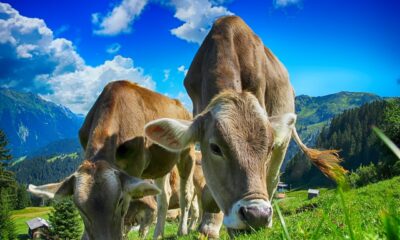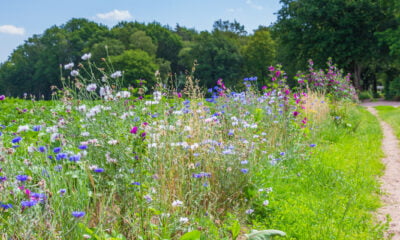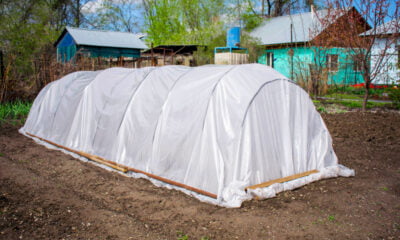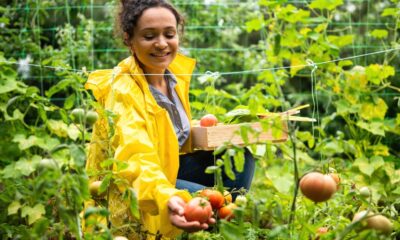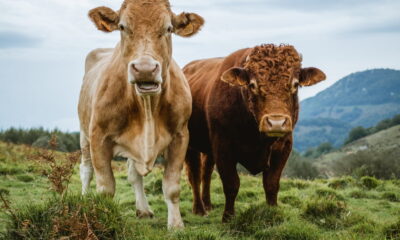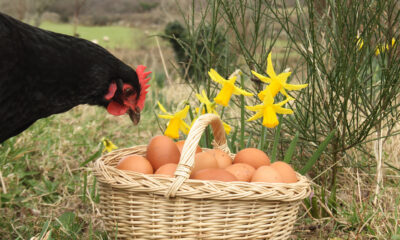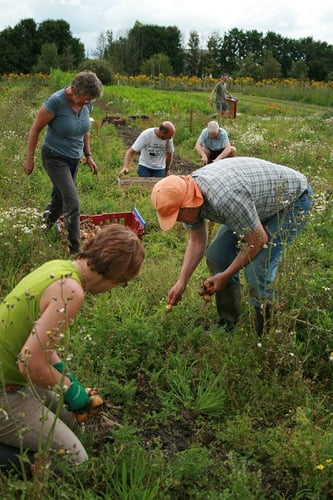

Features
Organic September: enabling change
Last week, we asked what ‘organic’ meant as part of the Soil Association’s month-long Organic September celebrations. This time, we look at what you can do to enable change.
It’s not just consumers who can ‘go organic’. In fact, there are a whole host of even greater steps that need to be taken before organic products hit the shelves.
Here’s a number of ways that individuals, businesses and producers can enable change towards “healthy, humane and sustainable food, farming and land use”, as recommended by Soil Association.
Certification
There are a number of strict standards in place that organic products have to pass in order to be officially certified as organic.
The Soil Association’s own not-for-profit certification arm is one of the largest organic certification organisations in the UK, with another prominent certifying body being Organic Farms & Growers.
It was announced in February that the European Union and the US would begin sharing each other’s organic certification; meaning now only one classifying body has to certify a product’s organic nature.
Catering mark
For restaurants and caterers, the Food for Life Catering Mark is one of the most esteemed marks of recognition that organic food providers can pick up.
It “guarantees that what’s on the menu is freshly prepared, free from undesirable additives and better for animal welfare”, and says to would-be customers that the food is good in more than just the delicious sense.
 Join a local group
Join a local group
If you’re passionate about organic produce, there are over 30 local groups run by the Soil Association in the UK that you can join in order to engage and share ideas with likeminded, organic-orientated individuals.
Whether you share recipe ideas, pass on vegetable growing techniques or put on organic-related events, the groups are vital in ensuring sustainable food systems for generations to come.
Click here to find your nearest one.
Apprenticeship scheme
If you want your passion for organic food to extend into your working career, the Soil Association offers an Organic Apprenticeship Scheme for wannabe organic farmers and growers.
The two-year placement teaches individuals everything you need to know with regards to organic farming, and combines practical work assignments with theory-based seminars.
Community supported agriculture (CSA)
Through CSA, farmers and communities share all the benefits of growing organic produce.
Farmers receive a steady income stream, while the community gets fresh, organic produce on a regular basis: a win-win for both parties.
Visit the Soil Association’s dedicated CSA page to find out how you can get involved.
Organic buying groups
If your friends, family and colleagues share your passion for organic produce, it may be cost-efficient for you to set up an organic buying group, where food is bought in bulk directly from farmers and wholesalers.
This works well for vegetables, meat and dairy products, and in most cases works out significantly cheaper than buying organic goods from a supermarket.
Land Trust
The Soil Association has set up a Land Trust “to protect the countryside by acquiring and managing farmland sustainably; and to connect the public with the stewardship of the land.”
Practical skills
There are a number of courses available all over the UK that aim to pass on vital organic skills to as wide an audience as possible – perfect for farmers and growers interested in producing good food.
These range from bee-keeping to vegetable growing, willow weaving to hedge laying.
For a full list of courses, see the Soil Association’s website.
So there you have it; eight practical and easy ways to become immersed in all things organic. Do you already follow some of these recommendations? Perhaps you’re interested in taking up a course or joining a group? Let us know – we’d love to hear and share the reasons behind your thinking.
In related news, the Soil Association has this week chosen Good Energy, the UK’s foremost 100% renewable electricity supplier, as its official energy partner.
Juliet Davenport, CEO and founder at Good Energy, said, “We are proud to partner the Soil Association, which represents independently minded, environmentally aware farmers who are determined to work in harmony with the land.
“As a champion of smaller suppliers producing natural renewable energy, Good Energy is perfectly placed to support farmers who are interested in generating their own power.”
Davenport appeared in Blue & Green Tomorrow’s recent Guide to Limitless Clean Energy, in which she spoke enthusiastically about the UK renewable energy sector’s prosperous future.
Further reading:
Organic September: what is organic?
Soil Association set for month-long celebration of organic food


 Environment11 months ago
Environment11 months agoAre Polymer Banknotes: an Eco-Friendly Trend or a Groundswell?

 Features10 months ago
Features10 months agoEco-Friendly Cryptocurrencies: Sustainable Investment Choices

 Features11 months ago
Features11 months agoEco-Friendly Crypto Traders Must Find the Right Exchange

 Energy10 months ago
Energy10 months agoThe Growing Role of Solar Panels in Ireland’s Energy Future
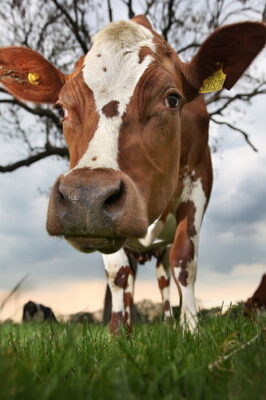 Join a local group
Join a local group